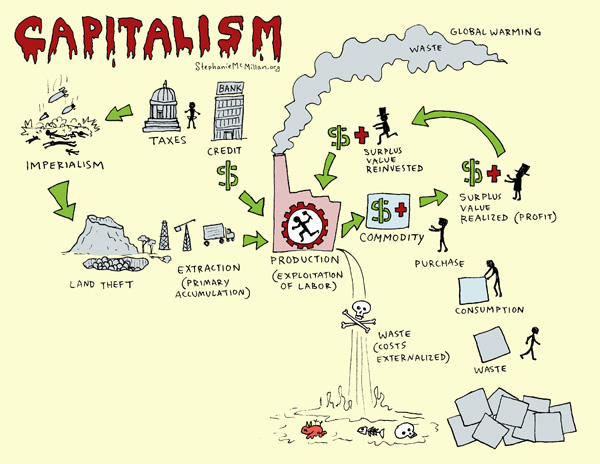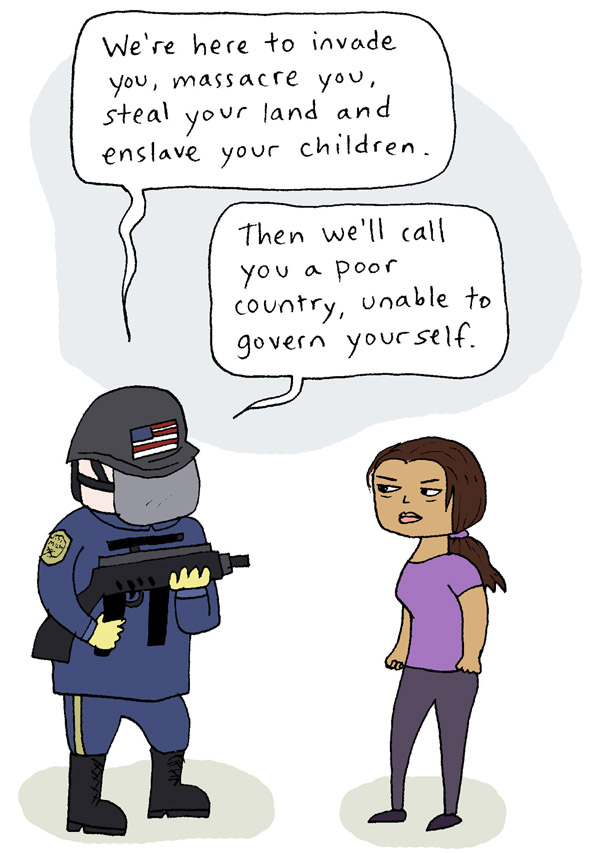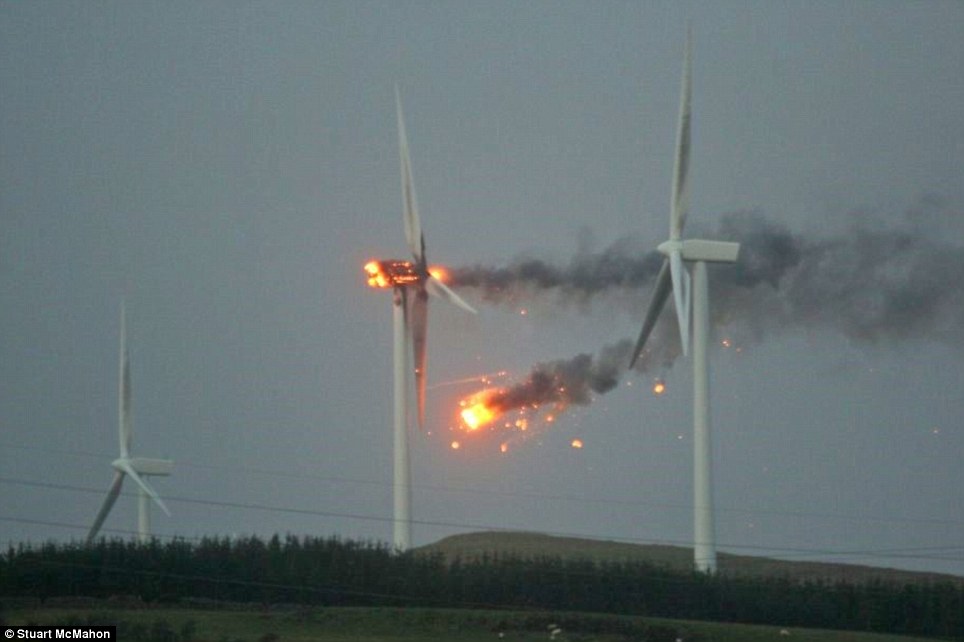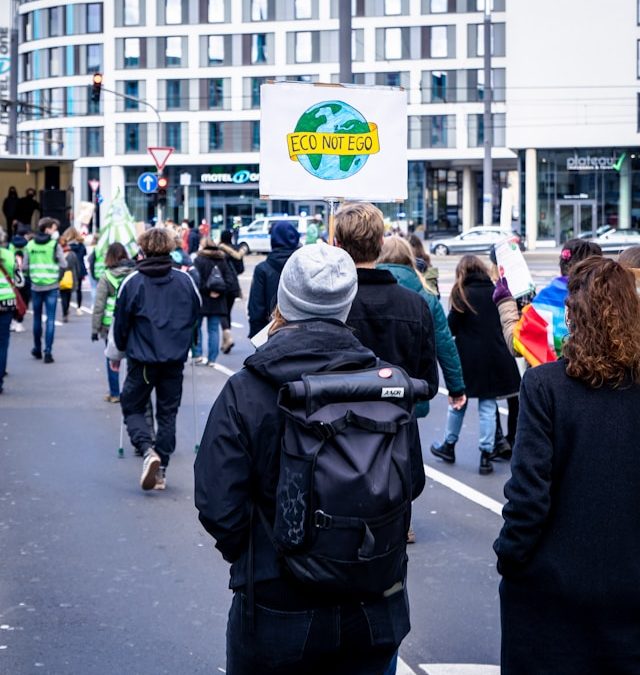
by DGR Colorado Plateau | Dec 10, 2015 | Colonialism & Conquest, Worker Exploitation
By One Struggle
“That country is poor.”
Translation: Your country had bountiful natural resources until we beat the hell out of you and stole everything.
“Their government is incompetent. They are unable to govern themselves.”
Translation: We invaded you, killed a bunch of you and set the rest at each other’s throats, and installed a dictator who’s helping us steal everything. But it’s your own fault that your country is a mess.
“The US helps people all over the world.”
Translation: If you don’t want our products or loans because they’ll ruin your economy, we’ll twist your arm until you take them. We’ll charge you for interest, inputs and maintenance far beyond the value of our original ‘assistance,’ and label ourselves saints and you ungrateful.

“Developing nations should be integrated into the global economy.”
Translation: First we’ll steal all your natural resources and destroy your economy, and then when your people are starving we’ll give them sweatshop jobs in our factories.
“We pay low wages but their living expenses are lower so it all works out.”
Translation: I’ll tell that lie to pacify domestic consumers, but really I don’t care if you starve.
“Okay, their lives are hard, but they should be grateful we gave them a job.”
Translation: You have no right to dignity, safety, to send your kids to school. I need that extra profit to pay for my fifth mansion in Switzerland.
“We are bringing democracy to the world.”
Translation: We’ll crush you.
“Without our help, they’d fall apart. They need us.”
Translation: We don’t produce anything, but we’re violent sociopaths loaded up with guns and nuclear weapons, so we’ll keep on sucking your blood as long as we can get away with it. If you ever stop us, we’ll die.

by DGR Colorado Plateau | Nov 30, 2015 | The Problem: Civilization
By Max Wilbert / Deep Green Resistance
Modern society — industrial civilization — is built on violence.
This violence goes largely unnoticed. When it is noticed, it’s often seen a series of isolated incidents, rather than a fundamental part of the dominant culture.
#
Here is an average morning inside of this culture.
First, you wake up on top of a foam mattress offgassing toxic VOCs that will not biodegrade in 10,000 years. You sit up and put on your clothes — all with tags reading “Bangladesh” and “Puerto Rico” and “Dominican Republic.” These clothes were made by virtual slaves.
You walk downstairs and fill a glass with water from the tap. The water comes from a local river that was dammed 127 years ago. Ever since, native species in the watershed have been in decline. You drink the water.
You pour yourself a bowl of cereal. The cereal is made of wheat and corn grown in what was once the tallgrass prairie of the eastern Great Plains. Ninety nine percent of that habitat – millions of acres – was plowed and utterly destroyed to grow those crops. The soil is gone now; your meal is only possible through fossil fuel fertilizers.
You add milk; it comes from a factory farm nearby, where cattle are packed in next to each other in squalor and pumped full of antibiotics and rBGH (genetically modified growth hormone) to increase production. The cows are in pain; their imprisonment is fouling the land around them. The cereal tastes good.
It’s almost time for work, so you walk down to your car. You’re somewhat environmentally conscious, so you’ve bought an electric car. It makes you feel a lot better. The car has 1000 pounds of lithium-ion batteries under the hood. The lithium for those batteries was strip-mined in the Peruvian desert; the pollution and land destroyed by the mine has devastated local people’s traditional livelihoods. You get inside the car and start the engine. It’s a push-button startup system; there is a fancy LCD screen inside. It’s modern and sleek; you pull away from the curb.
You drive on paved streets to your destination. Under those streets are indigenous burial grounds. There used to be thick old-growth forest here; now it’s a trendy, up-and-coming neighborhood. There are a few run-down houses here and there; the poor people who used to live in this neighborhood and are being forced to move, many after generations here; it’s just the latest set of refugees that have walked through this place.
You pass a police officer. The precursor of the modern police force was the slave patrol in the antebellum South. Many people live in constant fear of them.
It’s cold outside, but inside the car you’re warm and happy. You’re listening to the radio; the transmission towers are responsible for a few hundred thousand bird deaths a year. The radio is on a news station. The news person is talking about the latest bombing campaign your government is conducting. It’s taking place far away; you don’t think about it too much.
You’ve arrived at work. You work at a hospital. The hospital is on a hill. Before the concrete and buildings, there was a meadow here. It was full of flowers in the spring. Insects came from a long way away to eat from the flowers. It made the flowers happy. Many people walked through the meadow in those days. There was a good view from there. Sometimes lovers would walk there to be alone. That all changed when the settlers came with their earth-movers and road-builders.
You park your car, then walk inside. The sun is shining. It’s a nice day. You pass the gardeners working outside, spraying herbicide on the weeds. It wouldn’t do to have weeds. The gardeners have brown skin. They came from Mexico. They used to grow their own food and sell the rest in the village down the road, but after the free trade agreements opened them up to competing with Cargill, they couldn’t stay anymore. They became refugees and crossed the border. Technically, they’re in the country illegally. The land they’re on was part of Mexico before the war.
Inside the hospital, there are people waiting to be seen for appointments. They’re reading magazines. Most the magazines have pictures of women in them. The women aren’t wearing many clothes. They’re being used to sell products. A girl is reading one of the magazines. She looks about 10 years old. The leading cause of death for girls a few years older than her is eating disorders.
Another woman is hoping to have an abortion. She is only 19 years old. The hospital has Catholic roots; she won’t be allowed that level of control over her body and her future.
You walk past them, past examination rooms and surgical rooms and recovery rooms. There are receptacles everywhere for gloves, needles, and other medical waste. All the garbage from this hospital is shipped to an incinerator; it’s illegal to send it to a landfill. The incinerator is located in the middle of a poor neighborhood two states away. The smoke that comes out of its smokestack contains some of the most toxic substances known to science. There is a school a block away from the incinerator. They keep their windows closed and keep the kids inside when the smoke is rising from the facility. It doesn’t help much.
You get to your office. You touch the door as you walk in. It’s made of dense chipboard. The wood in the chipboard used to be an old-growth boreal forest. Formaldehyde and other chemical glues hold it together. Like the light switch, the computer, the examination table, the chairs, the desk, the floor tiles, and the light fixtures, the paint on the door is made from oil. The oil used in these specific light fixtures and floor tiles came from Saudi Arabia and Nigeria and Texas and Canada.
You sit down and get to work.
#
This was a very partial description of the violence in modern society. Make no mistake: this is a war.
When we are honest about the level of violence in this culture, not resisting becomes a sickening thought.
But false solutions abound; almost all of the solutions put forth to solve these problems of violence continue it in another form, or simply displace it to another area of the world or a new type of impact.
True solutions undermine the ability of industrial civilization to continue its destruction. A longtime military maxim has been that victory requires removing the ability or will of the enemy to continue their fight. This is a situation of planetary self-defense. All options are on the table, from revolutionary law-making to strategic non-violence to coordinated sabotage of industrial infrastructure.
If you’re contemplating entering the fight, remember what Andrea Dworkin famously wrote: “Resist, do not comply.”

by DGR Colorado Plateau | Nov 23, 2015 | Colonialism & Conquest, Human Supremacy, Listening to the Land
By Derrick Jensen / Deep Green Resistance
Robert Jay Lifton noted that before you can commit any mass atrocity, you must convince yourself and others that what you’re doing is not atrocious, but rather beneficial. You must have what he called a “claim to virtue.” Thus the Nazis weren’t, from their perspective, committing mass murder and genocide, but were “purifying” the “Aryan Race.” They weren’t waging aggressive war but gaining necessary Lebensraum. The United States has never committed genocide, but rather has fulfilled its Manifest Destiny. It has never waged aggressive war, but rather has “defended its national interest” and “promoted freedom and democracy.” Today, the dominant culture isn’t killing the planet, but rather “developing natural resources.”
This is to say that any culture foolish and insane enough to murder the planet that is our only home would of course be foolish and insane enough to attempt to provide justifications for this murder.
That brings us to An Ecomodernist Manifesto, the same sort of claim to virtue we’ve come to expect from this culture’s several thousand year tradition of nature-hating. Heck, the first written myth of this culture is of the hero Gilgamesh deforesting what is now Iraq to build a city and make a name for himself. Fast forward a few thousand years, and that’s the same nature-hating and empire-building story being told in An Ecomodernist Manifesto (and that has been told in myriad ways in between).
The narcissism, entitlement, and gaslighting starts at the beginning: “To say that the Earth is a human planet becomes truer every day. Humans are made from the Earth, and the Earth is remade by human hands. Many earth scientists express this by stating that the Earth has entered a new geological epoch: the Anthropocene, the Age of Humans. As scholars, scientists, campaigners, and citizens, we write with the conviction that knowledge and technology, applied with wisdom, might allow for a good, or even great, Anthropocene.”
“The Earth is remade by human hands.” Remade is such a nice word, isn’t it? Much better than destroyed, murdered, ravaged, grievously harmed, don’t you think? Gilgamesh and those who came after didn’t deforest and desertify what was once called the Fertile Crescent, they remade it from cedar forests so thick that sunlight never touched the ground into cities and deserts. The Egyptians and Phoenicians didn’t kill the forests of North Africa, they remade them into navies and deserts. This culture hasn’t wiped out 98 percent of the world’s ancient forests, wetlands, grasslands; it’s merely remade them, complete with remaking the plants and animals there into extinction. This culture isn’t killing the oceans; it’s merely remaking them such that there probably won’t be any fish. It’s not extirpating elephants and great apes and great cats and two hundred species per day; it’s merely remaking them so they’re extinct. It doesn’t commit land theft and genocide against Indigenous peoples, instead it merely remakes them and their landbases.
Further, the sort of remaking they’re talking about in this Manifesto is not done by all humans, as they claim. It’s done by specific sorts of humans, who feel entitled to take everything on the planet, the sorts of people who might call it a “human planet.”
I live on Tolowa Indian land in what is now far northern California. The Tolowa lived here for at least 12500 years, and when the Europeans arrived, the place was a paradise. There were so many salmon in the rivers that the rivers were “black and roiling” with fish. The Tolowa and Yurok and Hoopa lived here truly sustainably, and could have continued to do so more or less forever. Members of the dominant culture arrived less than 200 years ago, and immediately embarked on campaigns of extermination—the authors of An Ecomodernist Manifesto might call these “campaigns of remaking”—against the human and nonhuman inhabitants.
And what was the point of all of these campaigns of extermination remaking? It was no different in the 1830s than it is now, and it is no different now than it was in the time of Gilgamish. The point is to allow Gilgamish to create a city and make a name for himself; I mean, to allow the Chosen People to enter the Promised Land; I mean, to allow the superior ones to create an empire upon which the sun never sets; I mean, to allow the superior ones to Manifest their Destiny; I mean, to allow the superior ones to create a Thousand Year Reich; I mean, to allow the superior ones to do so much damage to the planet that they name a fucking geologic epoch after themselves; I mean, to “allow for a good, or even great, Anthropocene.”
The authors of An Ecomodernist Manifesto also state: “Violence in all forms has declined significantly and is probably at the lowest per capita level ever experienced by the human species, the horrors of the 20th century and present-day terrorism notwithstanding.”
Who would have guessed that when you redefine violence perpetrated by your culture as not being violence but rather as “remaking,” that you can then claim that “violence in all forms has declined significantly”? I’m not sure members of the two hundred species driven extinct today would agree that “violence in all forms has declined significantly.” Nor would members of Indigenous human cultures being driven from their land, or being exterminated: Indigenous human languages are being driven extinct at an even faster relative rate than are nonhuman species. But I guess none of this counts as violence in any form whatsoever. Because of this culture’s “remaking” of the planet, wildlife populations across the world have collapsed by 50 percent over the past forty years. Because of this “remaking,” the oceans are acidifying, and are suffocating in plastic. I guess none of this counts as violence in any form. This “remaking” of the planet is causing the greatest mass extinction in the history of the world, in fact so far as we know the greatest mass extinction in the history of the universe. And violence is down? Only because they don’t count the violence they don’t want to count.
They also don’t count the violence of subsistence farmers being driven from their lands. Nor do they count the violence of humans (and nonhumans) losing their traditional ways of living in this great “remaking.” They don’t count the horrors of factory farming or row-crop agriculture.
The authors state, “Globally, human beings have moved from autocratic government toward liberal democracy characterized by the rule of law and increased freedom.”
I don’t think those subsistence farmers forced from their land and into cities would agree they’re living in a time of increased freedom. And I don’t think any of us have the freedom to live free of the world this culture is “remaking.” Do I have the freedom to live in a world with more migratory songbirds each year? More amphibians? Do I have the freedom to live in a world not being murdered? This culture gives its victims the choice: “Adapt to the world we are remaking to suit us, or die.” This is not fundamentally different to the choice this culture has long offered Indigenous peoples, of “Christianity or death,” or “Give away your lands and assimilate, or death.” Once you give in to this culture, stop defending your land from this culture, become dependent on this culture, work for this culture, identify with this culture, propagandize for this culture, serve this culture, then the culture and its proponents may stop attacking you. But if you don’t give in, you will be exterminated. As we see. And none of this is considered violence.
A few years ago I was interviewed by a dedicated Marxist who believes it’s possible to create an industrial system in which all economic exchanges are voluntary, absent of any violence or coercion. Of course, as with the authors of An Ecomodernist Manifesto, he didn’t count violence against nonhumans or the natural world as violence. He also said that cities could exist under such a society.
I asked, “What do you use for transportation?”
He said, “Buses.”
I asked, “Where do you get the metals for the buses?”
“Mines.”
“Where do you get the miners?” Mining is one of the first three forms of slavery, and the primary way to get people into mines has always been coercion, whether it’s at the point of a sword or gun; or through laws such as those of apartheid; or through other means of destroying people’s access to land, and therefore access to food, clothing, and shelter, and therefore self-sufficiency.
He said, “You pay them enough that they’ll do it.”
I said, “What about pollution in the river? We agree that mines pollute, right? It’s impossible to have a mine without harming the land and water and air, right?”
He agreed.
I said, “What about the people who live next to the river which will now be polluted?”
“You pay them to move.”
“What if they’ve lived there for 12500 years, and their ancestors are there, and they refuse to move?”
“Pay them more.”
“They refuse your money.”
“How many are there?”
“What difference does that make? Let’s say 500.”
He said, “We vote.”
I said, “So the million people in the city vote to take the land from the 500 people who live along the river?”
He said, “Yes.”
I said, “You do realize that by not questioning the industrial infrastructure, you have moved within one minute from being a staunch advocate for only voluntary economic exchanges, to defending colonialism, land theft from the Indigenous, and democratic empire, right?”
Cities have always depended on a countryside (also known as colonies, also known as nature) to exploit.
The authors state, “Whether it’s a local indigenous community or a foreign corporation that benefits, it is the continued dependence of humans on natural environments that is the problem for the conservation of nature.”
Often those trying to justify the destructiveness of this culture conflate Indigenous people living in place and affecting their landbase with the clearly destructive activities of transnational corporations. The claim seems to be: because humans lived someplace, and affected the land there (as every being will affect all other beings: the bacteria who live inside of you affect you, some in very positive ways), then that gives the dominant culture carte blanche to act however it wants. As the anti-environmentalist Charles Mann puts it: “Anything goes. . . . Native Americans managed the continent as they saw fit. Modern nations must do the same.” This is, of course, completely insane (and self-serving). Anyone with integrity understands the difference between Indigenous peoples living in the same place for 12500 years and the place being capable of supporting them for another 12500 years, and the dominant culture extracting resources to make a buck (oh, sorry, “remaking” the place).
Of course humans affect the land. Salmon affect the land. Alder trees affect the land. Beavers affect the land. Prairie dogs affect the land. Wolves affect the land. Oyster mushrooms affect the land. But the question becomes: does your presence on the land help make the land healthier? There’s a world of difference between participating in a living landbase on one hand; and extracting resources or “remaking” the land on the other. The former is a relationship; the latter is theft, murder, and control.
It was said of the Indians of northern California that they of course made decisions that affected the land (just as do salmon, redwood trees, and everyone else), but that these decisions were made on the understanding that the people were going to be living in that same place for the next five hundred years. In other words, their decisions were made based on their embodied understanding that their own health was entirely dependent upon the health of the land.
This is precisely the opposite of what those who promote extractive economies do, and it is precisely the opposite of what the authors of An Ecomodernist Manifesto propose. They propose that the “problem” is “the continued dependence of humans on natural environments.”
But that’s not the “problem.” That’s the reality. We live on the Earth, our only home, our only source of air, water, food, shelter, our only source of everything that brings life. It is physically impossible to “decouple,” to use one of the favored words of the Manifesto’s authors, the health of the land from the long term health of those who are dependent upon this land. Sure, you can steal from the land to build a city and a navy, and use that city and navy to conquer more land. Sure, you can continue on a path of expansion across the globe, cutting down forests and draining wetlands and damming rivers and making dead zones in oceans and extirpating nonhumans and stealing land from Indigenous peoples who were living there sustainably, so long as there are always new forests to cut down, new prairies to convert to croplands (and then to wastelands). So long as there are new frontiers to violate and exploit, new places to conquer and steal from (sorry, “remake”) you can continue to overshoot carrying capacity and destroy the planet. And in the meantime, you can build a hell of a big city and a hell of a big name for yourself. But you should never pretend that can be sustainable.
The authors ask, “Given that humans are completely dependent on the living biosphere, how is it possible that people are doing so much damage to natural systems without doing more harm to themselves?”
I keep thinking about what might be the internal and social experience of bacteria on a petri dish. At some point, a few of the bacteria might say, “There are limits to how much we can grow. Do you think we should start planning on how to live here sustainably?”
Others respond, “Things have never been better. If we just keep doing what we’re doing, we’ll create not only a good but great bacteriocene!”
The naysayers again point out that the petri dish is finite.
They’re shouted down by the optimists, who say, following the authors of An Ecomodernist Manifesto, “To the degree to which there are fixed physical boundaries to . . . consumption, they are so theoretical as to be functionally irrelevant.” The Ecomodernist bacteria insist that what’s really necessary is to decouple (one of their favorite words, too) their own well-being from that of the petri dish.
This discussion flourishes until the end, when the “remade” petri dish can no longer support life.
I briefly want to point out one more explicit lie, and one more false conceit. The explicit lie is, “The average per-capita use of land today is vastly lower than it was 5,000 years ago, despite the fact that modern people enjoy a far richer diet.” First, “average per-capita use of land” is a ridiculous measure of ecological or social health. The point of life is not, as the Bible suggested, to “go forth and multiply.” The point is not, to move this to the 21st Century, to project capitalism’s definition of success onto the real world and try to “get large or get out.” The point is and always has been the health of the land. A society with fewer members living in a long-term participatory, mutual relationship with the land is a far better measure of ecological and social health than is how much land each person requires. A sane culture would figure out how many people a piece of land can permanently (and optimally) support, and then make sure they’re below that number. An insane culture would overshoot carrying capacity and then consider itself superior because it (temporarily) supports more people per square mile.
But that’s not even the main lie, which is the absurd claim that “modern people enjoy a far richer diet.” Right now just three plants—rice, wheat, and millet—provide 60 percent of humans’ food energy intake, and fifteen plants provide 90 percent. Further, the provision of these foods is increasingly controlled by large corporations: four corporations control 75 percent of the world grain market. We can make similar statements about other food markets.
In contrast, the diet of hunter gatherers routinely included scores or hundreds of varieties of plants, plants not controlled by distant corporations. This is crucial, because if those in power can control a people’s food supply they can control their lives, which means they can force them to work for the elites: so much for the “freedom” of this new “remade” world.
And then there’s the fact that no one can anymore eat passenger pigeons, Eskimo curlews, great auks, or any of the other food staples this culture has caused to go extinct in its great remaking. And these days with the best tasting fish generally having been driven (at least commercially) extinct, increasingly corporations are selling what were once considered “trash fish” as luxuries. All of this is one reason the corporate press is increasingly praising insects as food: we’ve either destroyed or are destroying other foodstocks.
So it’s simply a lie to say modern diets are richer.
And finally, for the primary conceit of the Manifesto, which is that the world can be “remade” without destroying it. Let’s test their thesis. Name five biomes that have been managed for extraction—“remade,” to use their term—by this culture that have not been significantly harmed on their own terms.
Okay, let’s try four.
Three?
Two?
Okay, name one.
It can’t be done. Over the past several thousand years, this culture hasn’t managed for extraction a single biome without significantly harming it.
They say one sign of intelligence is the ability to recognize patterns. How stupid must our claims to virtue make us if we cannot recognize this pattern, with an unbroken string of failures running several thousand years and at this point literally covering the entire planet, from the deserts of Iraq to the garbage patches in the oceans to the melting icecaps to the dammed and polluted rivers?
Of course if your goal is to “remake” the world to create luxuries for yourself, and if you don’t care that this “remaking” destroys life on the planet, then you might not consider this to be a consistent pattern of failure. You may consider this a great success. Which in and of itself is pretty stupid.
Out of the more than 450 dead zones in the oceans—caused by this culture’s “remaking” of the planet—only one has recovered. It’s in the Black Sea. It recovered not because humans “decoupled” themselves from the earth, but rather because humans were forced to “decouple” themselves from empire. The Soviet Union collapsed, and this collapse made it so agriculture was no longer economically feasible in the region. In other words, humans could no longer “remake” the world in that place. And the world, or rather, that one small part of the world, began to recover.
The authors of An Ecomodernist Manifesto have it completely backwards. For several thousand years this nature-hating culture has tried as hard as it can to define itself as other than nature. It has tried to separate itself from nature, to pretend it is not of nature. To pretend it is above nature, better than nature. That what it creates is more important than what nature creates. It has tried to pretend that it is not dependent on nature.
If we wish to continue to live on this planet, we need to recognize and remember that it is our only home and that we are dependent upon this planet, and that this dependence is a very good thing. Far from attempting to “decouple” our well-being from that of the planet—which this culture has been trying to do for a few thousand years now, to the detriment of everyone this culture encounters—we need to recognize and remember that our own well-being has always been intimately dependent on the health of the planet. And those of us who care about life on the planet must stop those who are currently remaking—read, killing—this planet that is our only home.

by DGR Editor | Oct 10, 2015 | ANALYSIS, Mining & Drilling
by Kim Hill
Ten things environmentalists need to know about renewable energy:
1. Solar panels and wind turbines aren’t made out of nothing. They are made out of metals, plastics, chemicals. These products have been mined out of the ground, transported, processed, manufactured. Each stage leaves behind a trail of devastation: habitat destruction, water contamination, colonization, toxic waste, slave labour, greenhouse gas emissions, wars, and corporate profits. Renewables can never replace fossil fuel infrastructure, as they are entirely dependent on it for their existence.
2. The majority of electricity that is generated by renewables is used in manufacturing, mining, and other industries that are destroying the planet. Even if the generation of electricity were harmless, the consumption certainly isn’t. Every electrical device, in the process of production, leaves behind the same trail of devastation. Living communities—forests, rivers, oceans—become dead commodities.
3. The aim of converting from conventional power generation to renewables is to maintain the very system that is killing the living world, killing us all, at a rate of 200 species per day. Taking carbon emissions out of the equation doesn’t make it sustainable. This system needs not to be sustained, but stopped.
4. Humans, and all living beings, get our energy from plants and animals. Only the industrial system needs electricity to survive, and food and habitat for everyone are being sacrificed to feed it. Farmland and forests are being taken over, not just by the infrastructure itself, but by the mines, processing and waste dumping that it entails. Ensuring energy security for industry requires undermining energy security for living beings (that’s us).
5. Wind turbines and solar panels generate little, if any, net energy (energy returned on energy invested). The amount of energy used in the mining, manufacturing, research and development, transport, installation, maintenance and disposal of these technologies is almost as much—or in some cases more than—they ever produce. Renewables have been described as a laundering scheme: dirty energy goes in, clean energy comes out. (Although this is really beside the point, as no matter how much energy they generate, it doesn’t justify the destruction of the living world.)
6. Renewable energy subsidies take taxpayer money and give it directly to corporations. Investing in renewables is highly profitable. General Electric, BP, Samsung, and Mitsubishi all profit from renewables, and invest these profits in their other business activities. When environmentalists accept the word of corporations on what is good for the environment, something has gone seriously wrong.
7. More renewables doesn’t mean less conventional power, or less carbon emissions. It just means more power is being generated overall. Very few coal and gas plants have been taken off line as a result of renewables.
8. Only 20 per cent of energy used globally is in the form of electricity. The rest is oil and gas. Even if all the world’s electricity could be produced without carbon emissions (which it can’t), it would only reduce total emissions by 20 per cent. And even that would have little impact, as the amount of energy being used globally is increasing exponentially.
9. Solar panels and wind turbines last around 20-30 years, then need to be disposed of and replaced. The production process, of extracting, polluting, and exploiting, is not something that happens once, but is continuous and expanding.
10. The emissions reductions that renewables intend to achieve could be easily accomplished by improving the efficiency of existing coal plants, at a much lower cost. Given that coal or gas plants are required for back-up of all intermittent renewables, this shows that the whole renewables industry is nothing but an exercise in profiteering with no benefits for anyone other than the investors.
Further Reading:
Green Technology and Renewable Energy
Ten Reasons Intermittent Renewables (Wind and Solar PV) are a Problem
The Myth of Renewable Energy
A Problem With Wind Power
Green Illusions: The Dirty Secrets of Clean Energy and the Future of Environmentalism
In China, the true cost of Britain’s clean, green wind power experiment: Pollution on a disastrous scale
Originally published on Stories of Creative Ecology






